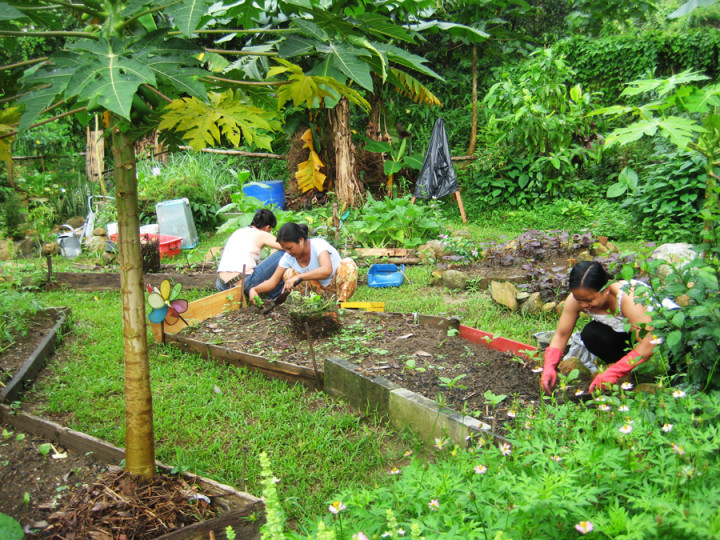The Legislative Council’s panel on food safety and environmental hygiene released its paper on sustainable agricultural development, asking for comments prior to the next meeting on June 9, 2015. The Humanist Association of Hong Kong submitted a brief comment on the matter and a letter-to-the-editor subsequently appeared in the South China Morning Post, reproduced here – the more detailed report sent to Government follows.
The report is typical of the fine theoretical work done by the Hong Kong government.
It gives the impression that everything is fine, but it isn’t. There are common-sense solutions that could be implemented. For example, urban gardening and greening could be usefully incorporated into the ever-increasing building on ex-farmed land.
This would be an important measure, given that our urbanised landscape is taking over what was a people-friendly rural habitat.
Where does the general public go to seek advice on, for example, where to get tomato seed that is suitable for the hot and humid Hong Kong climate?
As the report pointed out, Hong Kong departed from its agricultural-fisheries base and is now a services centre. People lost work with the decline of manufacturing and unemployment is still a factor in Hong Kong, as it is in other economies. What is needed in our society is to develop small-scale operations at every level. This should include encouraging the development of the agricultural-fisheries industry.
In the New Territories, there are various organisations such as cooperatives, which are on their last legs. They are the best vehicles to channel information and goods into the hands of those wanting to carry out the work of building a small but sustainable and vibrant agricultural sector.
Tony Henderson, Humanist Association of Hong Kong
Report to Government
The Legislative Council’s Panel on Food Safety and Environmental Hygiene released its paper on Sustainable Agricultural Development asking for comments prior to the next meeting June 9, 2015. Here is the comments from the Humanist Association of Hong Kong regarding farming.Bring back poultry and animal farming – dump the law which forbids anyone keeping a pig or more than twelve hens in Water Control Zones – which law has caused great anguish to farmers. SARS has long gone so it is time to allow markets to sell locally produced hens and the like as in any ordinary place. Animal waste is a useful byproduct and nulls the use of synthetic fertilisers, reducing imports and maintaining bio-diversity.
Agricultural land and our valuable marine areas should not be converted into building sites. Land conversion for reasons of cash profits for powerful groups and individuals to stop. Nor should government officers and private developers use environmentalism as reasons for holding up important projects that are needed by people such as hospitals, special homes for the needy, public housing, schools etc.
Farming and fishing carried out in a manner that guarantees the future of those industries. Young people need to be attracted into those areas and with the application of appropriate, affordable and interesting technology this can be done. There IS a minority who would rather farm if it were to afford them a living, which it does not, not without a farm policy. In this age the farmer or fisherman should not have to be a peasant.
Give the Districts real decision power and involvement – this is particularly important for farming-gardening. In this way meaningful financial autonomy for the Districts can grow to responsibly address their management duties – not just library management level tasks and tennis courts.
We do not agree with charging people for their waste produced. Government is responsible to lay down a system of dealing with waste where it can generate value. People cannot afford yet another form of taxation. Government should deal with the problem, lay down the supporting structure and people will co-operate.
It is better not to waste waste in landfills. Introduction of neighbourhood re-cycling systems with householder’s participation – separating metals, glass, plastic and organic wastes of course but not to forget shrub and tree cuttings etc from parks composted for return to parklands; branches can be chipped for faster decomposition – recycle materials locally by introducing re-cycling neighbourhood systems for local disposal, not incineration or landfills.
Restructuring of Ag. & Fish. Dept. disengaging its present responsibilities over both conservation and exploitation – the Environmental Protection Dept. (EPD) should look after conservation. Change the Planning, Environment and Lands Branch to give Environment its independency and equal ranking.
It is proper that the Ag. & Fish. Dept. handles mariculture, farming and fishing, but not conservation as this brings conflict of interest. Financial assistance to help pig and chicken farmers manage waste effectively to within the stipulations of the Water Control Zone requirements. Long term aim to re-introduce larger scale pig and poultry farming when livestock waste control methods are adequate. Development of Mr Ko Yu-lam’s dung fermentation plant for general use – much cheaper than the Ag. & Fish. equivalent proposal.
Make it an offense to import vegetables containing toxic amounts of pesticide. Better controls over large scale fish farming syndicates which over-feed stock for fast growth and pollute waters to the detriment of the environment and the entire mariculture industry. The ban on commercial trawlers is already making a difference but we need to ban using too fine or large area nets in-shore. Research into over-fishing locally.
Fire breaks around hill cemeteries and barbecue sites – temporary country park wardens hired for fire-watching during Ching Ming and Chung Yang festivals. No developments in country park areas. Ban on any more golf courses. More areas to be declared Sites of Scientific Interest to protect local endangered species. Sites of Scientific Interest and conservation sites generally to have adequate buffer zones with controlled use of substances, eg., ban use of concentrated chemicals, and limitations on excavation and building, in their bio-region. Green the urban areas and clean the rural areas.
Small-scale agriculture viable in Hong Kong
-






